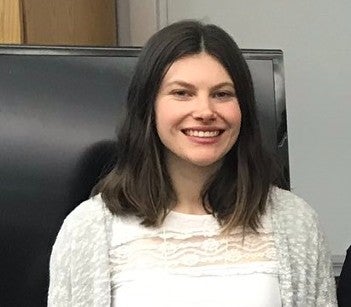The PhD Applied Philosophy is an innovative program at the University of Waterloo that brings together abstract theorizing and practical problems.
Program
Applied philosophy involves engaging with and reflecting on real, practical situations and problems. It requires bidirectional thinking: reflecting both on how existing philosophical ideas and theories help us understand and solve practical problems, and also on how the details of actual cases lead us to reexamine and reformulate existing theories.
The main objective of the Applied Philosophy Program is to teach students how to integrate theoretical training in philosophy with the ability to apply philosophy to practical problems. This training will prepare graduates for pluralistic career pathways. Outside the university, there is an increasing awareness of the fruitfulness of philosophical training and perspectives for solving complex problems. Philosophers are trained to think logically and abstractly about complex problems, and this training is useful in a variety of domains in government, health care, business, charitable organizations, and beyond.
An Applied Research Placement could involve applying ethics in a research project at a hospital on end of life care or applying philosophy of science, epistemology, and ethics in a research project at a government agency on science policy or applying philosophy of language and ethics in a research project at an internet publishing company on distinguishing between erotica and pornography.
The PhD in Applied Philosophy requires the completion of course work, a prospectus and a dissertation project. Students complete an Applied Research Placement at a host organization (e.g., non-profit, hospital, business, government agency).
This experience of observing how the health care system implements changes to law and policy, and the role of an ethicist in supporting resolution of these challenges really had an impact on me,” she says.
“I look forward to supporting patients, families and healthcare workers through ethical issues by conducting clinical ethics consultations, policy work and research related to MAiD now and in the future.
Key features
- Coursework focused on engagement with practical problems
- Flexible assignments to learn various communication styles
- The Applied Research Placement, an eight-month activity combining scholarly work with a host organization
- Dissertation projects with non-traditional components, such as policy recommendations or articles for the popular press
- Training appropriate for academic and non-academic careers
The applied philosophy degree preserves the status of the program as a research PhD, which makes graduates strong candidates for both academic and non-academic careers. Dissertation projects will remain sole-authored major research projects. The distinctive aspect of the applied program is the focus on the solution of a particular practical problem rather than on detailed engagement with current professional philosophical literature
Funding
All PhD students in the Department of Philosophy receive a standard annual funding package, which will continue during the placement. Outside the funding package, each spring term the department offers extra TA positions to some of our interested graduate students. Students have access to conference and workshop reimbursements from the department, faculty, and university level through the Graduate Student Conference Assistantship. Our department also awards an Excellence in PhD Studies Travel Award once a year to provide additional support for presenting papers at workshops and conferences. For questions about funding, please contact the Graduate Coordinator.
MITACS
The Department of Philosophy has formed a relationship with MITACS, a national non-profit research and training organization that facilitates graduate student internships. Students accepted for MITACS placements will receive special funding jointly through MITACS and their host organizations.
Admissions
Applications are due by February 1 for the following academic year. Admissions requirements are similar to those for traditional philosophy PhD programs, though we are open to candidates with a broader range of academic backgrounds.
*Note: Due to funding restrictions, the Faculty of Arts is currently limiting the number of international students we can admit. Please contact the department's Associate Chair, Graduate Studies prior to applying to discuss your interest in this program.
